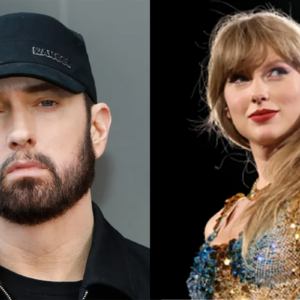The Dark Side of Record Deals and the Music Industry’s Exploitation

The music industry, often seen as a glamorous pathway to fame and fortune, harbors a darker side characterized by exploitative practices, financial manipulation, and potential motives that extend beyond the well-being of the artists. This critique has gained traction through various sources, including a revealing video that delves into the intricacies of record deals, the exploitation of artists, and the unsettling notion that record labels might benefit financially from the deaths of their musicians.
Record deals are the golden tickets to success for many aspiring artists. However, the glittering facade often conceals a web of financial entrapments. Mariah Carey’s $20 million record deal exemplifies this. Artists receive advances from their labels, which are essentially loans to be repaid through album sales and performances. This financial arrangement can quickly turn disadvantageous if album sales do not surpass the advance and production costs. The artist is left in debt, while the label continues to profit.
The video elaborates on this by explaining how labels often retain the lion’s share of profits, leaving artists with a fraction of their earnings. This practice, although legal, raises ethical questions about the industry’s commitment to fostering genuine talent versus exploiting it for monetary gain.
One of the most controversial claims in the video is the suggestion that record labels might benefit from the deaths of their artists. Comedian Cat Williams and others have pointed out that labels sometimes take out life insurance policies on their artists. This practice, while not inherently sinister, could create a disturbing financial incentive if an artist dies. French Montana’s remarks about life insurance policies hint at the potential for labels to profit significantly from such tragedies.
The video references historical cases like the deaths of Tupac Shakur and The Notorious B.I.G., noting how their posthumous albums and legacy have continued to generate substantial revenue for their labels. This raises uncomfortable questions about the industry’s role in potentially exacerbating or even benefiting from the violent environments that many artists come from.

The music industry is notorious for its control over artists’ music and careers. Taylor Swift’s highly publicized battle to gain ownership of her music and Kanye West’s vocal complaints about his record deal are prime examples. These cases highlight how artists can feel trapped and powerless despite their fame.
The video breaks down the three main types of record deals: standard royalty, 50/50, and 360 deals. Each of these deals has its own pitfalls, often leading to scenarios where the artist is left with minimal control over their creative output and financial rewards. This lack of control can extend to personal aspects of their lives, with labels dictating their public image and even personal behavior.
The rap industry, in particular, has been plagued by violence. The video links this to the pressures and expectations placed on artists by their labels. It suggests that labels might encourage violent personas and incidents because they can boost sales and streams. The tragic deaths of artists like Nipsey Hussle and XXXTentacion are cited as examples of how the industry’s emphasis on violent imagery and behavior can have deadly consequences.
The profitability of deceased artists is not a new phenomenon. Forbes’ list of highest-paid dead celebrities consistently features musicians, indicating that their estates and record labels continue to profit long after their deaths. This ongoing profitability underscores the video’s critique of the industry’s exploitative nature.
The video’s overall message is a scathing critique of the music industry’s business practices. It argues that the industry not only financially exploits artists but also puts their lives at risk. The pressures of fame, coupled with the financial entanglements of record deals, can lead to dangerous and even deadly situations for artists.
The need for reform in the music industry is clear. Artists should have greater control over their music, fairer financial arrangements, and a supportive environment that prioritizes their well-being over profits. The dark side of record deals and industry exploitation must be addressed to ensure that the pursuit of musical dreams does not become a path to exploitation and tragedy.
VIDEO:
News
Taylor Swift Drops Everything and Plays in the Pouring Rain During Hamburg Eras Tour Kickoff
The pop icon rocked the stage in the rain during her first show in the German city, with a second night to come before her final stop in the country in Munich Taylor Swift performs onstage during “Taylor Swift |…
What’s a capo? Taylor Swift asks for one during her acoustic set in Hamburg
Taylor Swift has completed 120 acoustic sets on her massive Eras Tour, but not without a couple of accidental errors. In Hamburg, Germany, on Tuesday she picked up her guitar and started strumming when she spoke to her production team….
Taylor Swift’s surprise songs from The Eras Tour Night 1 in Hamburg, Germany
GERMANY, — Taylor Swift is performing seven shows across Germany on The Eras Tour. She started the international leg May 9 in Paris after a two-month break from touring as she released her new album, “The Tortured Poets Department.” She’s performing two shows…
Taylor Swift’s The Tortured Poets Department Ends 12-Week Domination Streak of Billboard 200
Pop star Taylor Swift’s album The Tortured Poets Department has dropped to No. 4 on the Billboard 200 chart, ending its 12-week run at No. 1. Rapper Eminem vs Taylor Swift BILLBOARD Album The Tortured Poets DepartmentReleased in April 2024,…
Taylor Swift tribute performer makes ‘Sparks Fly’ at Canobie Lake Park
For those who haven’t been able to see Taylor Swift’s record-breaking Eras Tour, a trip to Canobie Lake Park in Salem, New Hampshire, may be enough to get a Taylor fix, as a tribute show there makes “Sparks Fly” for…
Justin Bieber PANICS As 50 Cent LEAKS His Video With Diddy’s S3X Workers
Unveiling the Troubling Dynamics Between Justin Bieber and Diddy: A Deep Dive into Allegations of Exploitation Recent revelations surrounding Justin Bieber and his association with Diddy have sent shockwaves through the entertainment industry, shedding light on disturbing allegations of exploitation…
End of content
No more pages to load











